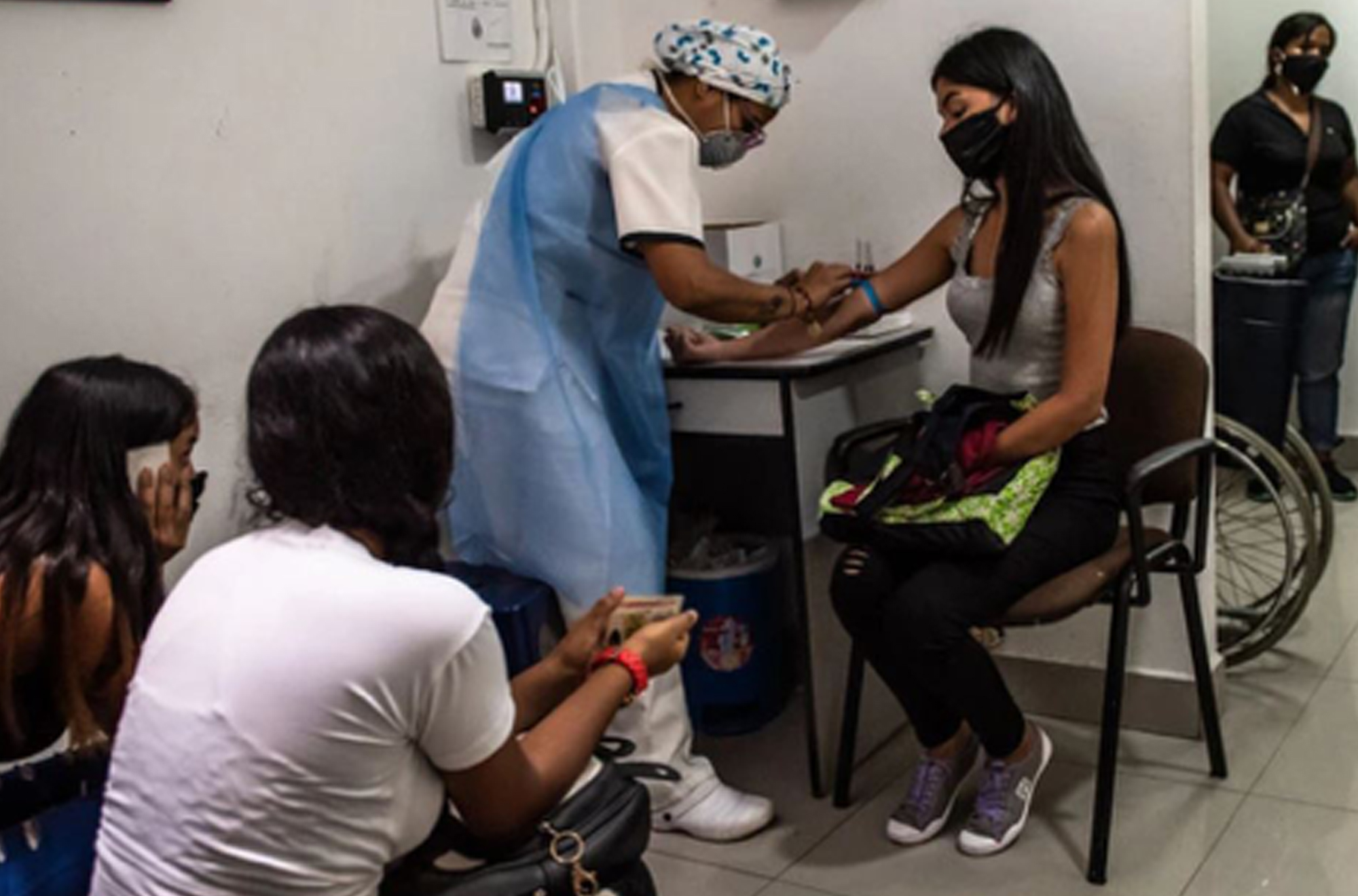
Venezuela is spiralling deeper and deeper into an economic crisis that has already lasted eight years. An increasing number of women do not know where the next meal for their families will come from. They often cannot find any contraception and even if they do manage to find it, many cannot afford it at current prices. So they end up pregnant and having an unsafe abortion. Things are not just bad; they are going backwards at a frightening speed.
In Caracas, a pack of three condoms costs US$4.40 — three times the monthly minimum wage of US$1.50. Birth control pills cost US$11 a month, while an IUD can cost more than US$40. And that does not include the doctor’s fee to insert it. The full and equal participation of women in society promised by Hugo Chávez, including subsidised and widely available contraception (though not legal abortion) has not outlived him due to years of punitive US sanctions, which have left the country’s public health system in shreds. Birth control is nearly absent from government clinics and available at private pharmacies only at prohibitive prices.
By 2015, contraceptives, once free at government hospitals and broadly affordable at private pharmacies, began to disappear. And women who could once plan their futures — thanks to contraception — began to lose control. By 2018, oral contraceptives, implants and patches were nearly impossible to find in several major cities, according to a study by the reproductive rights coalition Equivalencies in Action. Some couples began to ration or abstain from sex. Others tried to plan around a woman’s menstrual cycle. But it did not always work. And not everyone has a choice.
As the crisis has sharpened, many women say that abuse has, too, making it difficult for them to say no to a partner or to leave a relationship.
Anitza Freitez, a demographer with the Universidad Católica Andrés Bello in Caracas, said the dynamic could shape the country for decades, creating “a vicious circle of poverty”. Maternal deaths surged 65% between 2015 and 2016, according to the Health Ministry. And then the government stopped releasing data.
The number of women seeking abortions has surged, according to interviews with health professionals and community workers across the country. There used to be doctors who would do abortions illegally in safe conditions. But about half the country’s physicians, some 30,000 of them, have left in recent years, according to the Venezuelan Medical Federation, driving women to makeshift clinics. Now, however, individuals and small groups are teaching women how to find and use misoprostol. Yet in some cases, women are paying as much as US$150 for a set of misoprostol pills.
One woman who survived a bad experience using misoprostol alone said: “You say to yourself, ‘Well, this happened, but it could have been worse. It could have gone differently. I could have died in the process, but I didn’t, and it’s OK.’” she said. “But it’s not OK. It’s not OK that I had to have an abortion in a warehouse. It’s not OK that I passed out, that I became depressed. It’s not OK that I feel the way I do,” she said, words tumbling out in anger. “It’s not OK that the country pushes you into this desperation, that all it does is close its doors to you. I am resilient, yes. But at some point, all of us get tired. And I am tired. I am so tired.”
SOURCE: Boston Globe, by Julie Turkewitz and Isayen Herrera / Originally published in the New York Times, 20 February 2021.
PHOTO, by Meridith Kohut: At one of the family planning clinics run by Plafam (https://www.plafam.org.ve/), which remain open. The waiting rooms are always packed. Women sometimes sleep outside, desperate to be among those who receive free birth control implants on distribution days.
POSTSCRIPT: US author Jane Caro shared the NY Times article on Twitter. One respondent to her tweet asked: “Does the article mention that the primary cause of misery is US sanctions? I’m gonna guess that’s a big no, as it’s the NY Times” (Tweet). In fact, the article did mention it. And so did we. Someone who they will listen to should share this report with Joe Biden and Kamala Harris.



